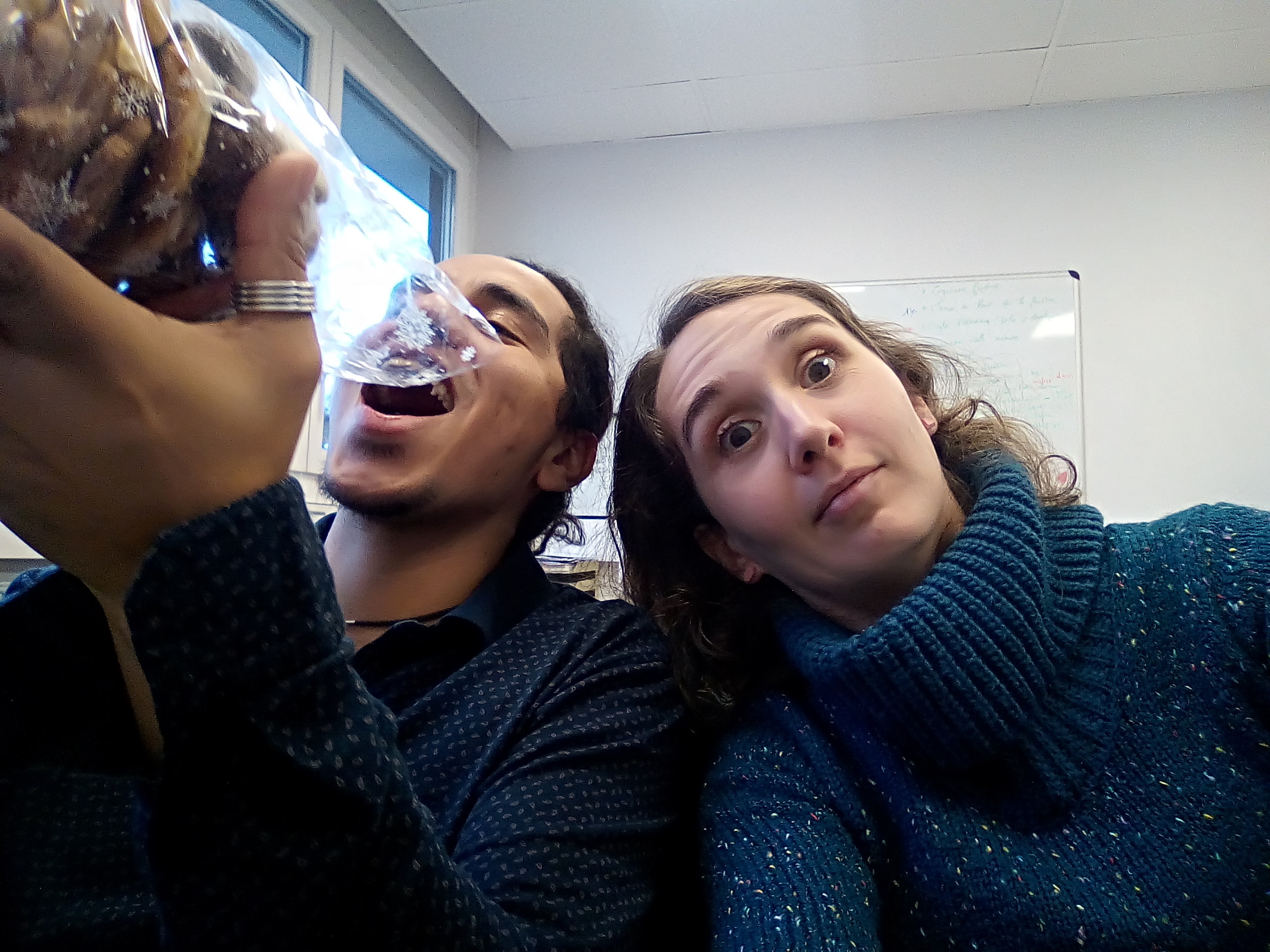Samedi 28 Février 2026
Marie Pelé PhD in Ethology
Academic Profile
I obtained my PhD in ethology in 2010 from the University of Strasbourg on the economic-like behaviours in monkeys (capuchins and macaques) and great apes (chimpanzees, orang-utans, bonobos and gorillas). The PhD prize LeMonde pour la recherche universitaire in 2011 has awarded the results of this thesis. After having worked in Germany, in United-States and in Japan, I came back to Strasbourg in 2012. I created Ethobiosciences that allowed me to carry out various scientific and educational missions, as well as consulting with animal professionals. In 2015, I participated to the creation of the Animal Ethics specialization of the Master degree Ethics and Society of the University of Strasbourg, in collaboration with the CEERE. The several projects set up as part of this specialization are available here. In 2018, I came back to full-time academic research as lecturer at the University of Strasbourg and researcher at the IPHC-CNRS. Since 2020, I am a permanent researcher in animal and human behaviour at the Anthropo-Lab of the ETHICS laboratory at Lille Catholic University, France.
Ongoing Research Projects
- Draw me a sheep
This first line of research deals with the origins of drawing behaviour through time and cultures, but also with its characterization. I develop mathematical procedures (Euclidean and fractals) to define different indices to probe the meaning of drawing of children of different ages and from different cultures. I also aim at determining the evolutionary origin of the graphic trace by studying drawing behaviour of great apes, chimpanzees and orang-utans.
Keywords: drawing, representation, learning, fractal analysis, touch-screen tablet, primates.
- Pedestrians and Road Safety
Here I try to understand the link between the individual and the collective by addressing the influence of social relations on decision-making. To do so, I target the influence of culture on the decision-making of road users and pedestrians when they cross a road. Using field observations and experimentations (nudges), I try to understand the decision-making process in a risky environment at both individual level and collective one.
Keywords: decision-making process, cognitive mechanisms, risk-taking, culture, humans.
- Animal and Human Relationships
To build and maintain good relations with animals, it is important to consider both human perspectives (through ethics, sociology and psychology) and animal ones (ethology, ecology and biology). My approach here is to apprehend these two important sides thanks to the implementation of an ethological engineering based on observation and experimentation.
Keywords: society, ethological engineering, environmental ethics, animal ethics.
Former Research Project
- Economics in Non-Human Primates
During my PhD, I aimed at investigating the conditions of calculated reciprocity (1) by testing whether primates integrate the time cost associated with an exchange, (2) by studying their ability to take into account the risk inherent to the exchange situation, and (3) by investigating whether they can engage with congeners in a calculated exchange.
Keywords: economics, delay, risk, calculated reciprocity.
Publications
Five representative publications
| Martinet L, Sueur C, Hirata S, Hosselet J, Matsuzawa T, Pelé M (2021) New indices to characterize drawing behaviour in humans (Homo sapiens) and chimpanzees (Pan troglodytes). Scientific Reports. DOI: 10.1038/s41598-021-83043-0
| Pelé M*, Kletty F*, Capber F, Habold C (2020) Are all conservation measures for endangered species legitimate ? Lines of thinking with the European hamster. Frontiers in Ecology and Evolution. DOI: 10.3389/fevo.2020.536937
| Sueur C, Class B, Hamm C, Meyer X & Pelé M (2013) Different risk thresholds in road pedestrian road crossing behaviour: a comparison of French and Japanese approaches. Accident Analysis and Prevention, 58: 59-63. DOI: 10.1016/j.aap.2013.04.027
| Pelé M, Broihanne MH, Thierry B, Call J & Dufour V (2014) To bet or not to bet ? Decision-making under risk in non human primates. Journal of Risk and Uncertainty, 49:141-166. DOI: 10.1007/s11166-014-9202-3
| Dufour V, Pelé M, Neumann M, Thierry B & Call J (2009) Calculated reciprocity after all: computation behind token transfers in orangutans. Biology Letters, 5: 172-175. DOI: 10.1098/rsbl.2008.0644
Please refer to my Google Scholar Profile.
Scientific Collaborations (ongoing)
Caroline Habold, CNRS-IPHC, Strasbourg, France
Jean-Yves George, CNRS-IPHC, Strasbourg, France
Cédric Sueur, CNRS-IPHC, Strasbourg, France
Tetsuro Matsuzawa, Kyoto University, Inuyama, Japan
Satoshi Hirata, Kyoto University, Kumamoto, Japan
Masaki Shimada, TeiKyo University of Science, Uenohara, Japan
Teaching
Animal Biology - Animal Behaviour - Human Behaviour - Cognition and Social Strategies - Behavioural Ecology - Environment Economy and Management
Science Outreach
2021 : Et si nous arrivions à déchiffrer les dessins des très jeunes enfants? The Conversation France.
2018 : Les animaux ont-ils des émotions ? Roundtable.
Since 2016 : Singes – Singes du Japon. Book, exhibition and conferences.
https://www.issekinicho.fr/saru/
2016 : Singes et réseaux sociaux. Journal du CNRS + LeMonde Newspaper.
https://lejournal.cnrs.fr/videos/comment-la-culture-se-transmet-chez-les-singes
2013 : Dis-moi comment tu traverses. DNA Newspaper.
2011 : De la monnaie de singe? Et pourquoi pas! LeMonde Newspaper.



